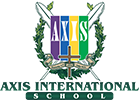Frequently Asked Questions
Yes, if their English ability is adequate. We conduct assessment tests prior to student enrollment to confirm that students are ready for an English curriculum and to determine at what grade level students should begin.
Some of the universities our graduates have been accepted include:
Andrews University, USA
University of British Columbia, Canada
Pacific Union College, USA
Sophia University, Japan
Southern Adventist University, USA
Temple University, Japan
University of Victoria, Canada
Washington Adventist University, USA
Other K-12 schools our graduates have gone to include:
BASIS Tuscon, U.S.A
The British School, Tokyo, Japan
Christian Academy in Japan, Tokyo, Japan
Hawaiian Baptist Academy, Honolulu, U.S.A
Hawaiian Mission Academy, Hawaii, USA
Hiroo Gakuen, Tokyo, Japan
Keimei, Tokyo, Japan
La Salle Green Hills, Mandaluyong, Philippines
Lincoln High School, Portland, U.S.A.
Lycée International School(American Section), Paris, France
Mid-Pacific Institute, Honolulu, U.S.A
Yangbul Elementary School, Gyeonggi City, Republic of Korea
Students with foreign nationalities make up 52% of the students.
10% America
12% China
4% Ghana
2% German
4% India
48% Japan
12% Korea
2% Lithuania
2% Malaysia
2% Filipino
2% Singapore
2% U.K.
2% Ukraine
Our teachers are American, British, Dutch, Filipino, Finnish, Japanese and South African.
They participate in: Badminton, Basketball, Soccer, Swimming, and Table Tennis.
Yes. Please come and discuss the many possibilities available.
Yes, as long as an American diploma is recognized. Please see below for a list of schools and countries that our students have transferred to.
Our international school accepts students in Grade 1 – Grade 12 (elementary, junior high, and high school). Our preschool program welcomes students from age 1 through kindergarten, preparing young students to join the international elementary school from Grade 1.
Our school follows the Griggs International Academy curriculum which is an accredited program based in the United States. Students graduating from our high school program earn the same U.S. high school diploma that any American child would receive.
Preferably, parents should speak and understand English in order to support their children’s studies and to communicate more effectively with the international teachers. However, Japanese-speaking staff members will support parents as much as possible.
Yes, if their English ability is adequate. We conduct assessment tests prior to student enrollment to confirm that students are ready for an English curriculum and to determine at what grade level students should begin.


